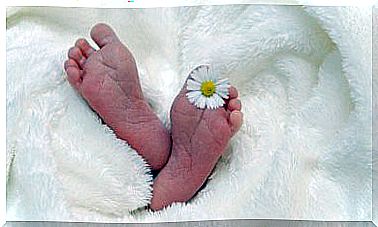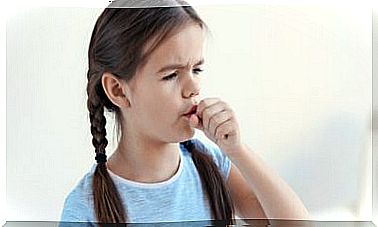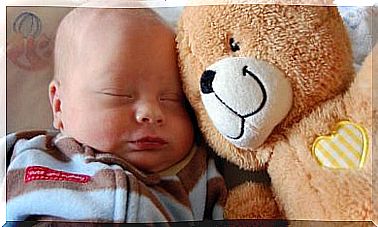The 5 Most Common Illnesses In Babies

There are illnesses that are common in babies. This is because their defense systems are still developing. That’s why babies are more vulnerable to environmental pathogens.
In this article, we will tell you what are the most common illnesses in children during the first year of life.
Cramps
Although colic is not a disease, it is a condition that affects your baby’s well-being. Most likely, your little one will experience them during the first few months of life.
Colic in babies appear between 2 and 3 weeks of age and usually disappear by the fifth month. A child is considered to have colic when, despite being a healthy baby, having slept and eaten, and has a clean diaper, and is not hot (or cold), she cries inconsolably for up to 3 consecutive hours for 3 days a week. You may notice that crying starts and ends suddenly, and is usually louder than usual. Also, the baby arches in pain.

These episodes are usually very stressful. For the first few weeks, parents are physically exhausted by the baby’s demands at home and lost sleep, so patience also diminishes. We must also take into account that the baby is a new being that the parents do not yet know well. Therefore, it is sometimes extremely difficult to understand what happens to him.
Although the reasons that generate colic are not clear, it is very likely that there are a multitude of factors. What is clear is that mothers who smoked during pregnancy, and continue to smoke, are more likely to have babies who suffer from colic, while breastfeeding mothers reduce these chances.
Some mothers also report improvements when they adopt a healthy diet. Mainly diets made up of low-fat proteins, carbohydrates, fruits and vegetables. It is important that the mother reduce the intake of dairy products, grains and other foods that cause gas.
Constipation
It is a problem that usually appears in the first two months of life. Or when the baby’s diet starts to change and baby food and other solid foods are added.
In both cases, this is due to a period of habituation in the baby’s digestive system. But it always generates a lot of inconvenience for the little ones.
To know if your baby is suffering from constipation, you must know the regularity of his bowel movements. Some get their diapers dirty every time they eat, others every other day. Within these ranges, it is normal. However, if your baby’s regularity begins to expand and is accompanied by hard, dry stools, he may be experiencing constipation.
It’s important to know that breastfed babies are less likely to have to deal with this discomfort during the first few weeks of life than those who are formula-fed.
If your baby has already started trying other foods, ask your pediatrician how you can help them with feeding. Often the options have to do with providing more water to the baby during the day and restricting foods such as rice, cassava, yams, green bananas, in addition to increasing the portions of fruit such as bananas, plums or papayas.
As each organism has its peculiarities. Thus, it is necessary to observe which foods help or hinder the baby’s bowel movements and which ones are better for balancing his diet.
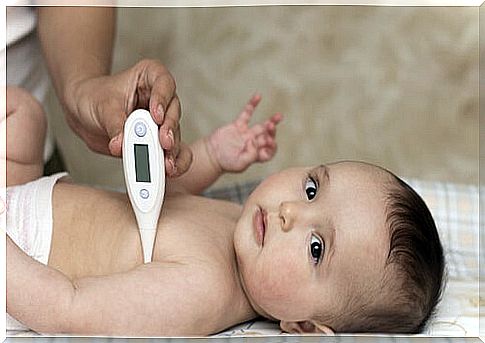
Coughs and colds
On average, children catch 6 to 10 colds in the first year of life. This often becomes difficult to deal with at home as it spreads easily among family members . This number can increase if the little one attends a day care center or has siblings who are also a source of disease transmission.
There are times that are more prone to contagion such as autumn and winter, as well as there are organisms that are more vulnerable to these diseases.
A cold is characterized by constant secretions in the nose that are clear, yellow, or green. These secretions also produce a drip into the throat that creates an irritating cough that accompanies a cold.
With the help of your pediatrician, you will be able to tell the difference between a cold and a similar condition of allergic origin. This is important because although symptoms may be very similar, treatment is often different, as are strategies to prevent them.
Diaper rash or dermatitis
Almost all babies experience some episodes of diaper rash that often affect their mobility and mood.
It is almost impossible to avoid this situation. Even if you are an attentive and caring mother of your child. However, the more time a baby spends with a dirty diaper, the more likely he is to be irritable.
You also need to consider other factors such as diet, as some foods can change the acidity of the stool and irritate your baby’s delicate skin.
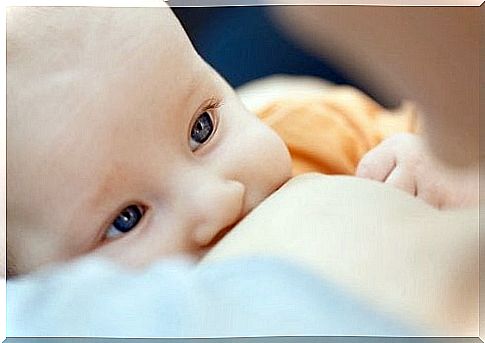
Diarrhea
Babies, due to natural conditions, often explore their surroundings and take their hands and other objects that are on their way to their mouths. This can lead to digestive problems such as diarrhea.
Other times they are caused by viruses that lodge in the digestive tract, such as rotaviruses or adenoviruses. These diarrheas tend to be more severe and lead to dehydration quickly, so you should be very careful and watchful. Furthermore, they are easily transferable.
Finally, there are diarrhea caused by food intolerances or allergies that basically occur immediately after eating some of these foods. In some children they are generated by gluten, in others by cow’s milk and dairy products, they can also be by citrus.
In any case, remember that diarrhea can quickly damage your baby’s health. Therefore, consult the doctor and do not medicate yourself. Prolonged diarrhea can also decrease nutrient absorption and affect your baby’s growth and development.


